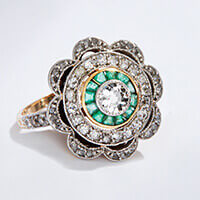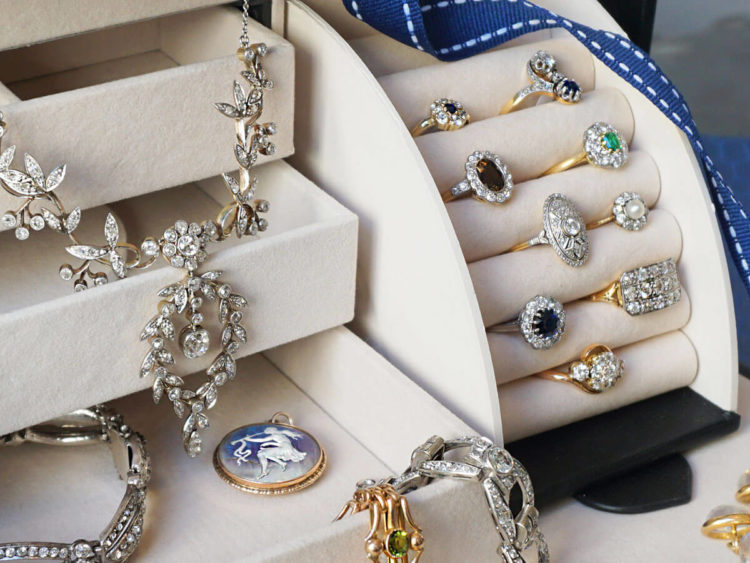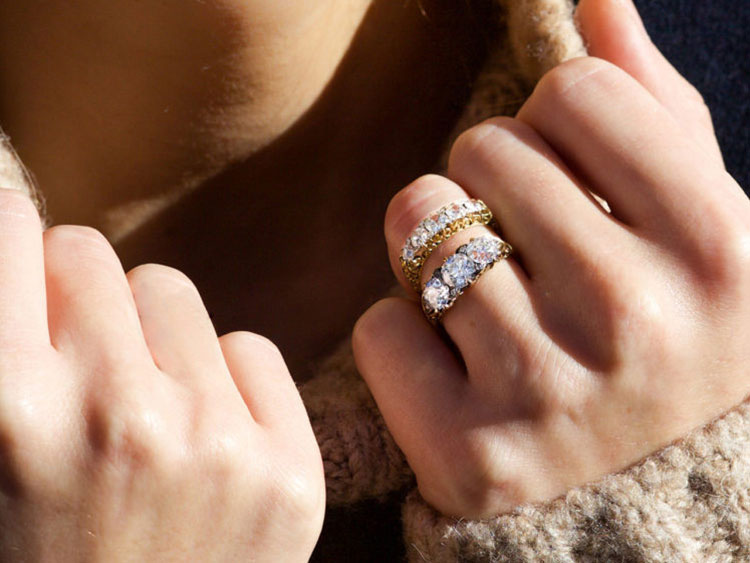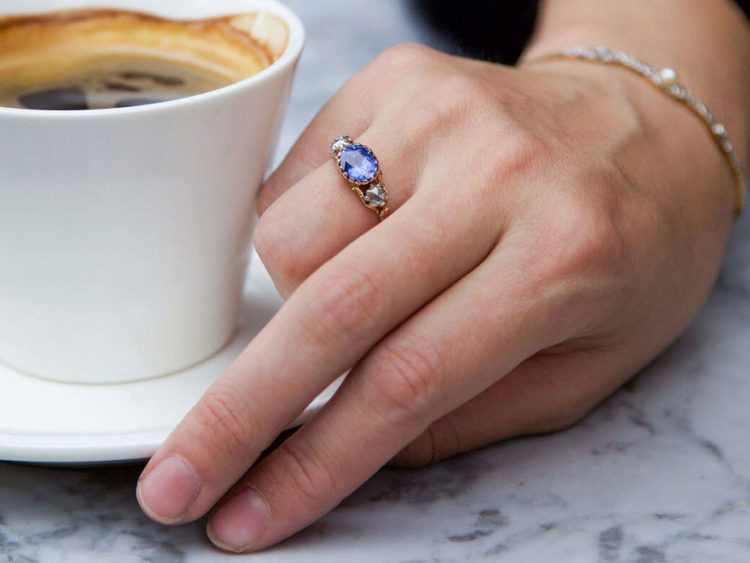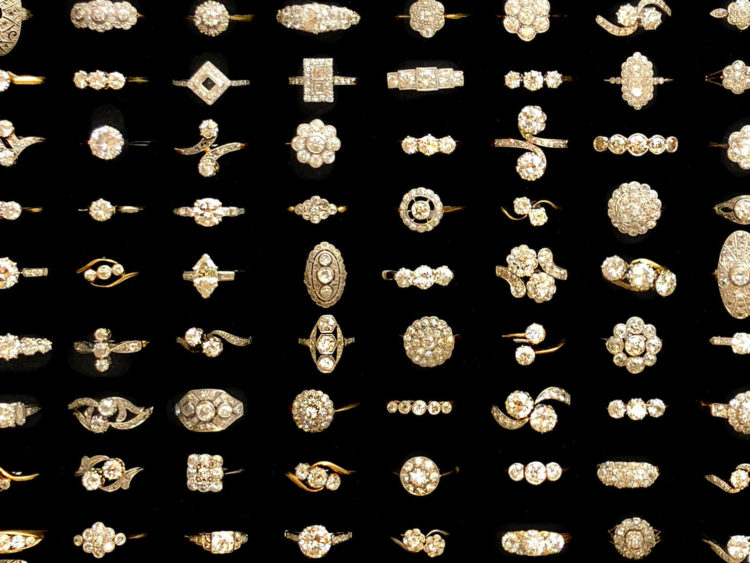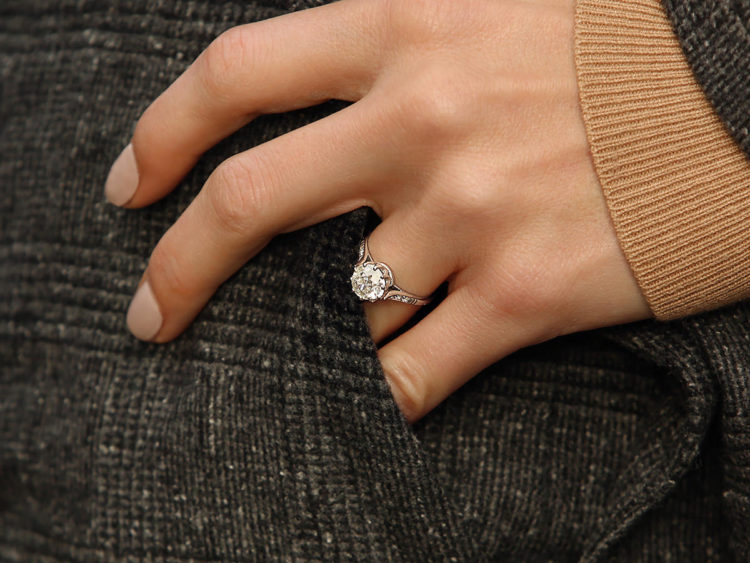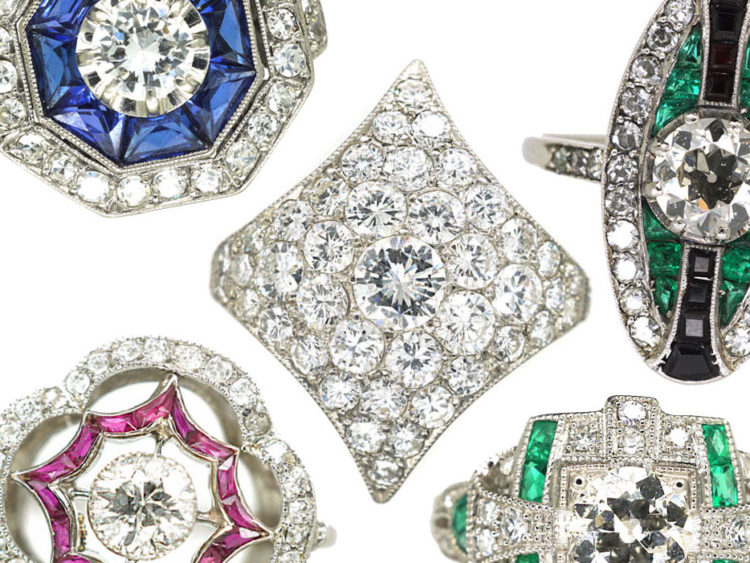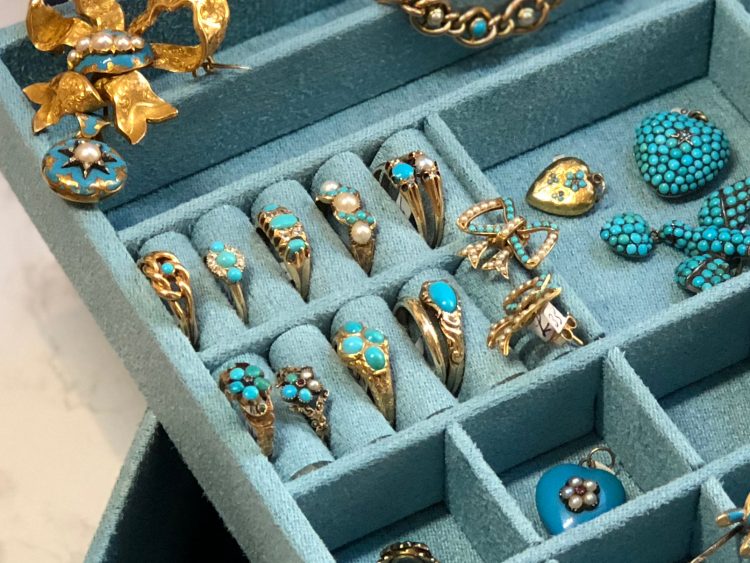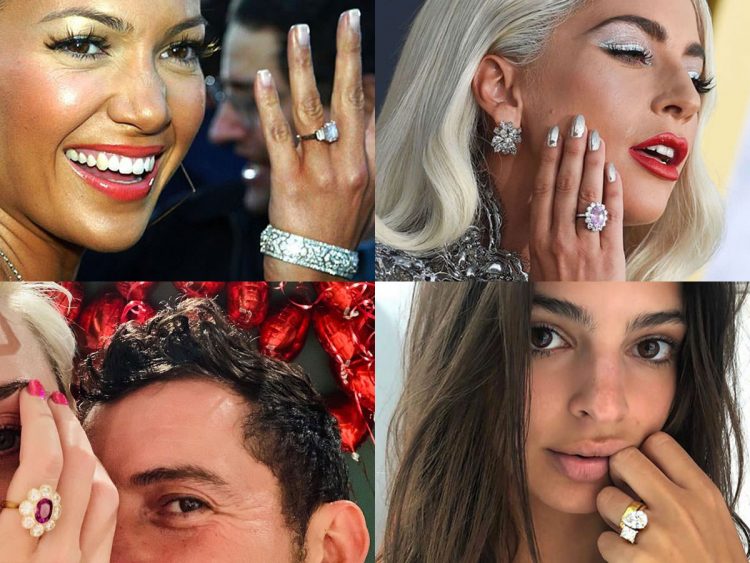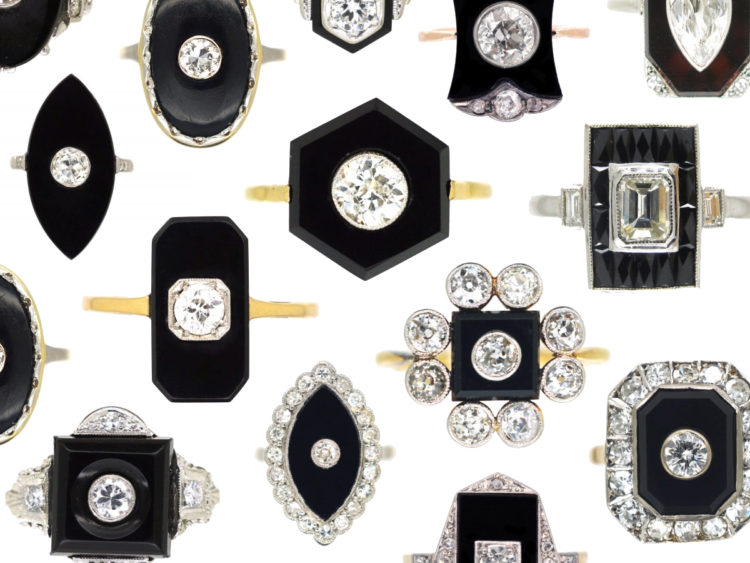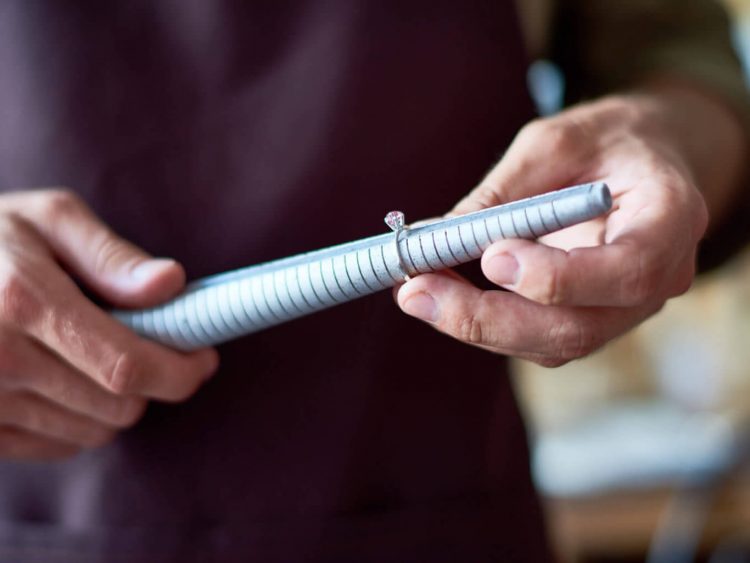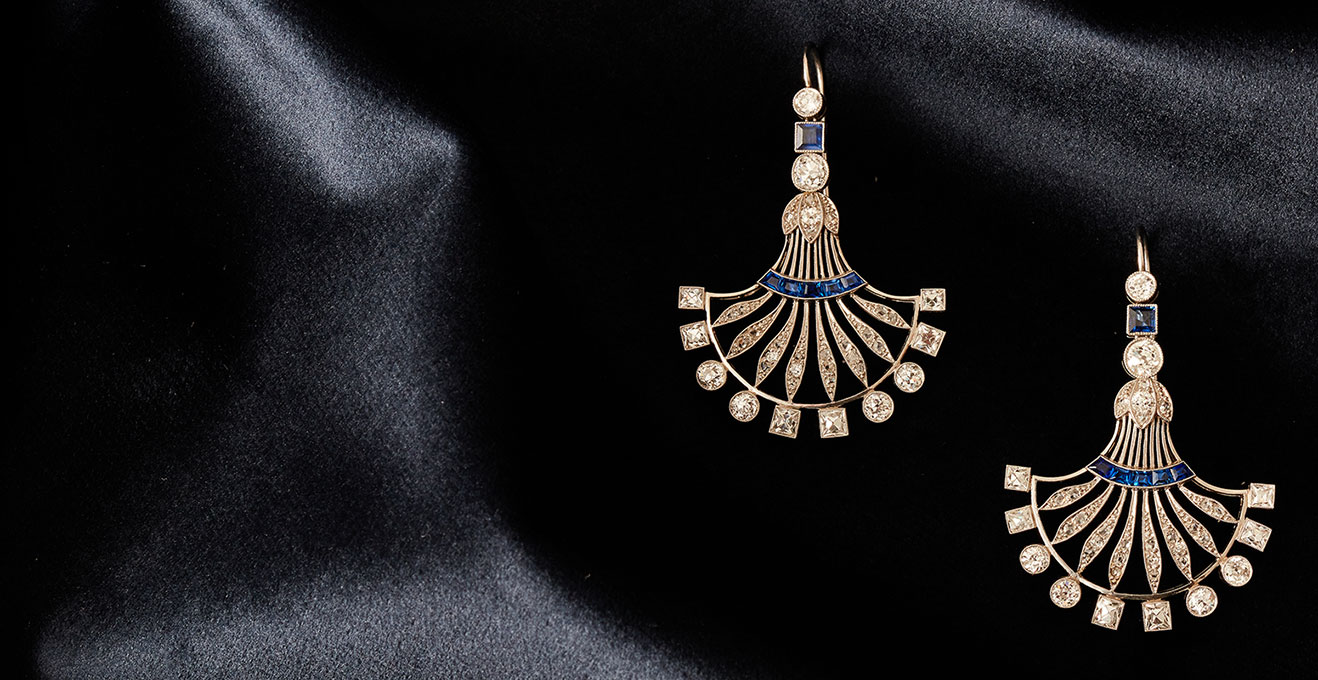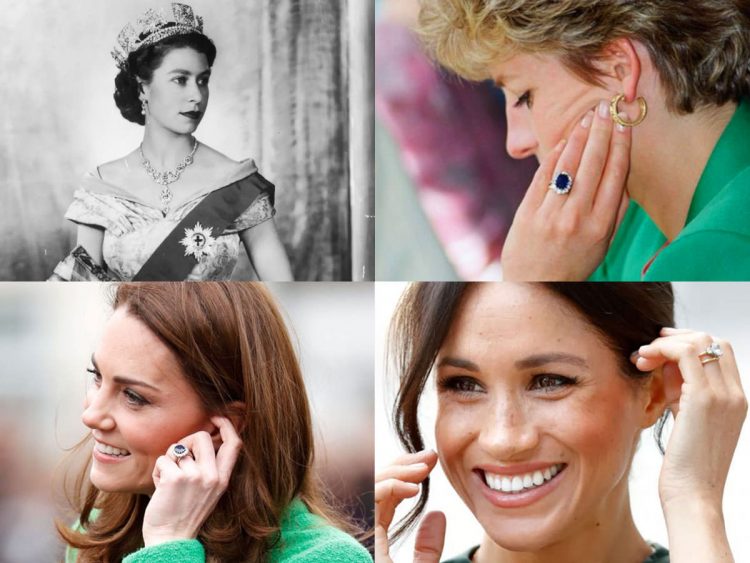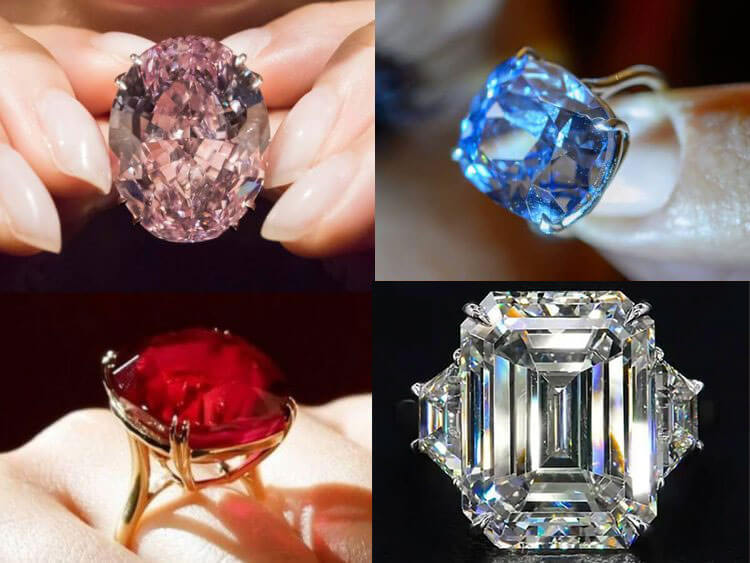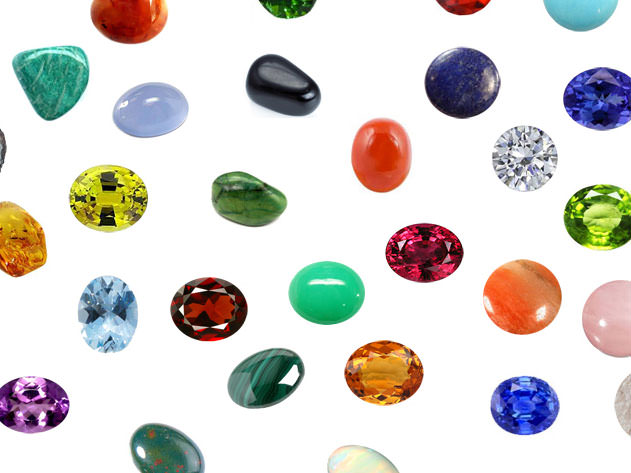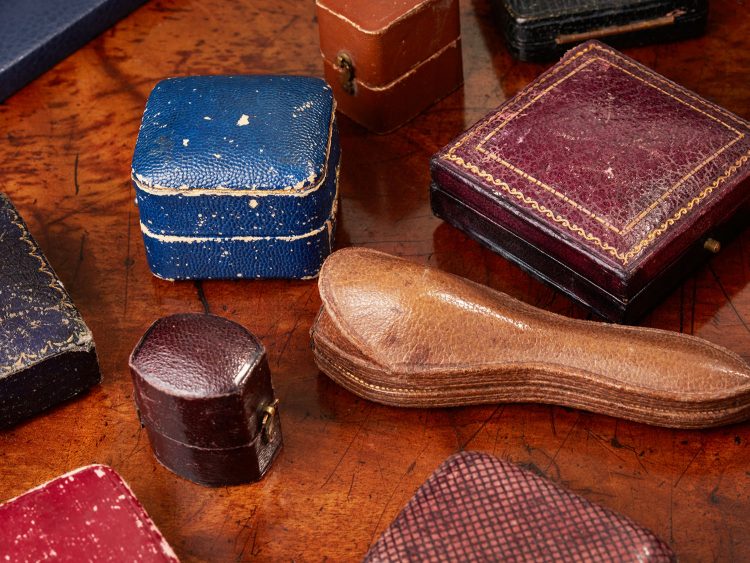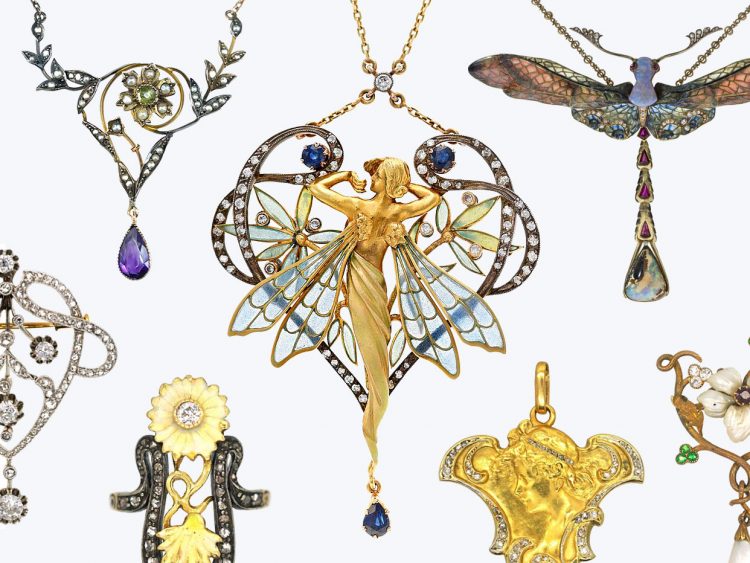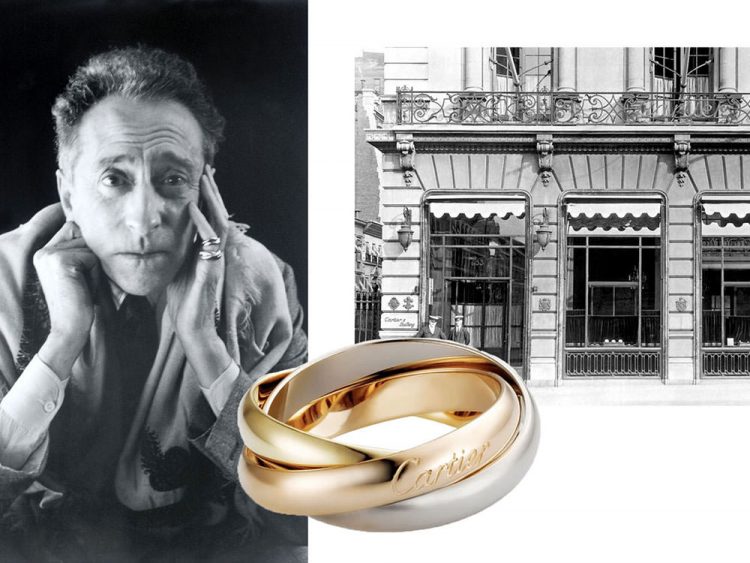-

Your Shopping Bag is empty
When to Take Off Your Engagement Ring
Your engagement ring is a precious symbol of your relationship, and it’s natural to want to wear it all the time. However, if you want it to stay in tip-top shape and protect it from damage you may need to take it off.
Here’s a guide to when you should remove your engagement ring to ensure it stays beautiful for years to come (just like your relationship).
1. Working Out
Before hitting the gym, it’s a good idea to take off your engagement ring. Physical activities like lifting weights, playing sports, or even yoga can put pressure on the ring. This could potentially bend the metal or loosen the diamond. The last thing you want is the claws holding your diamond to weaken. If you want to wear something during your workout, a silicone band is a much safer (and less costly) alternative.

2. Moisturizing
While lotions and moisturizers are great for your skin, they’re not so good for your stone. They can create a film over your diamond, emerald etc., dulling its shine. Over time, this buildup can make your ring look cloudy. To prevent this, take off your ring before applying any moisturizers and wait until your hands are completely dry before slipping it back on.
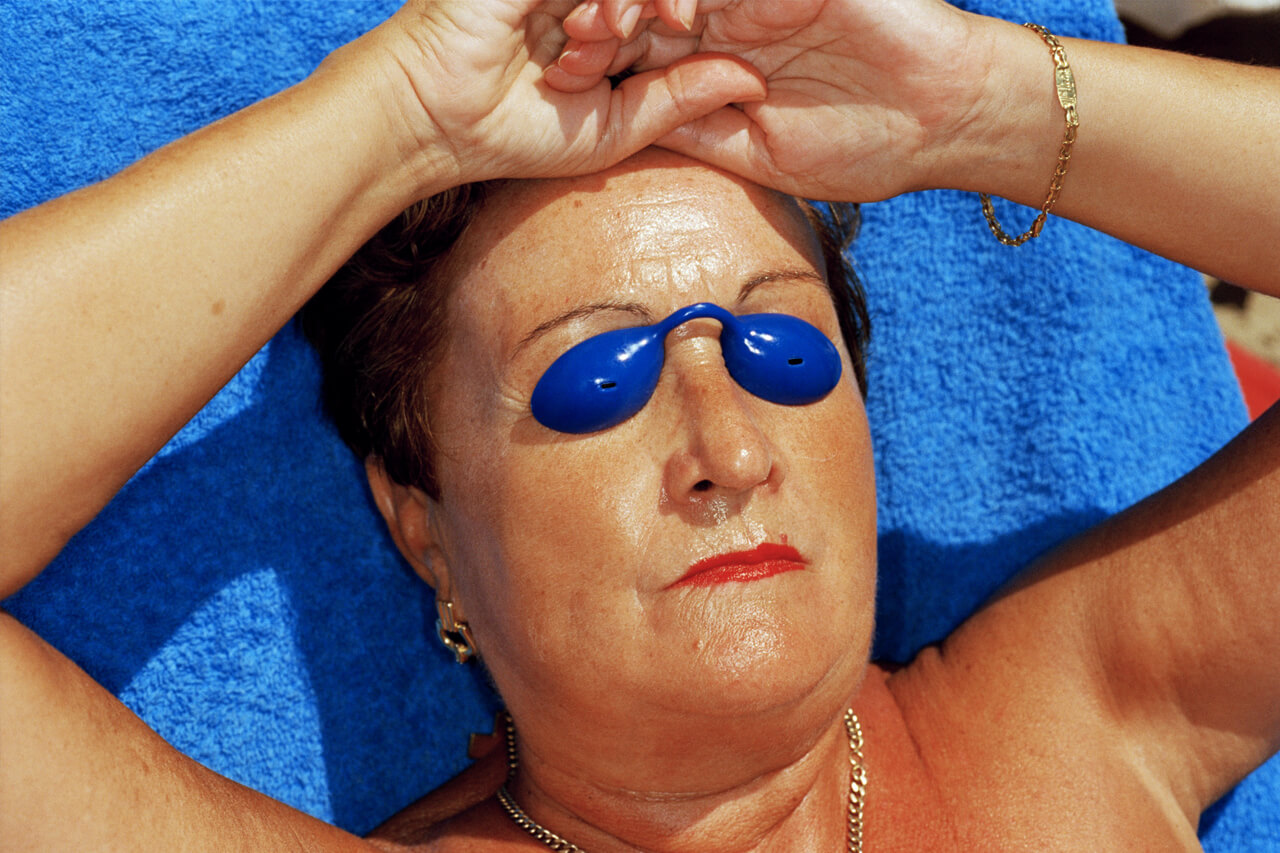
3. Applying Cosmetics
Getting done up can lead to your gemstone getting dulled down. Cosmetics, perfumes, and hair products can leave grime on your ring, affecting its brilliance. These beauty products can cling to your diamond, or sapphire (or any gemstone), and reduce its natural sparkle. To avoid this, take off your ring while applying makeup, hairspray, or perfume. After all, we want your diamond to sparkle as bright as you do.

4. Swimming
Never wear your engagement ring in the pool or ocean. Cold water can make your fingers shrink, increasing the risk of your ring slipping off unnoticed. Chlorine in pools can also damage the metal and dull the diamond. Best to leave your ring in a secure place, such as a safe or ring box, before going for a swim. Remember take it off before you take a dip!

5. Cleaning
Household cleaning can expose your ring to harsh chemicals like bleach and ammonia, which can damage the metal and stones. Additionally, cleaning activities can lead to accidental bumps and scratches. Always take off your engagement ring before cleaning, or wear protective gloves to keep it safe.

- What Finger Does an Engagement Ring Go On?
- Should You Wear Your Engagement Ring on Your Wedding Day?
- Which Finger Does a Wedding Ring Go On?
The last 2 aren’t as pressing but we still recommend you take off your engagment ring during:
6. Showering
Showering with your ring on isn’t recommended. Soapy water can make the ring slippery, causing it to easily slip off and potentially get lost down the drain. Soaps can also leave a residue on your diamond, dulling its brilliance. It’s better to leave your ring in a safe spot before stepping into the shower.

7. Cooking
When preparing food, it’s best to remove your engagement ring. Food particles and bacteria can get trapped in the ring’s setting, and your ring can slip off when rinsing dishes. For both hygiene and safety reasons, it’s a good idea to take off your ring before cooking or food prep.

By being mindful of when to take off your engagement ring, you can protect it from damage and ensure it remains a beautiful symbol of your love for years to come. Regularly cleaning and checking your ring will also help keep it in top condition.
Care and Maintenance with The AJC
We recommend to insure your engagement so that it is properly covered, in the event of theft or loss (or going down the shower drain). You can add jewellery to your home contents insurance, or buy a separate policy for it.
Advice for care per period. Do antique rings require different care? Generally not, if you have a Victorian or Georgian ring that is close backed or foil backed, then you shouldn’t submerge it in water. Very few of our rings include this detail, but if you are concerned, please don’t hesitate to contact us.
The AJC offers a six-month warranty against damage to items purchased through us that is not due to wear and tear and/or negligence subsequent to purchase. Depending on the issue, we’ll either repair the item for you free of charge or provide you with a repair quote from our trusted jeweller.
We know (and stress) the importance of choosing jewellery that fits your lifestyle, as certain materials and styles of jewellery are better suited for active lifestyles, or every-day wear.
Not sure what ring suits your lifestyle? Make an appointment and come have a natter with our experts. They’ll guide you through which ring suits your (or your partner’s) lifestyle.




 Free Worldwide Delivery
Free Worldwide Delivery View All
View All
 Diamond
Diamond
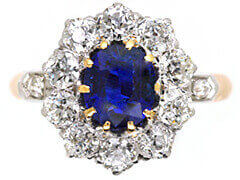 Sapphire
Sapphire
 Emerald
Emerald
 Ruby
Ruby
